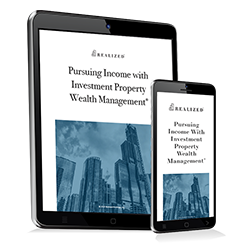
Establishing a budget is one of the most important aspects of financial security in retirement. A budget can help ensure your retirement dollars last the rest of your life, which could be decades after you stop working.
You’ll likely want to take a deep dive into your overall financial situation with a certified financial planner long before you retire to determine what your income and debt obligations will look like after you stop working. A financial planner also can help you figure out if you may be able to retire early, or if you might benefit by working past age 65. Regardless, you’ll have to figure out how much money you’ll need each month during retirement.
This article examines what makes a “good” monthly income for retirees to maintain their current standard of living. We’ll provide some general insight into the process, since each person’s financial situation, outstanding debt, and financial requirements in retirement are different.
How to Calculate How Much Money You’ll Need During Retirement
According to the U.S. Census Bureau, the median income for people over the age of 65 was just north of $46,000 in 2020.1 Your income may be more or less once you tally your Social Security payments, savings, brokerage account balances, and other potential sources of income during retirement.
Income aside, determining how much money you’ll need each month during your retirement years comes with a lot of variables. Your age, family history, and lifestyle choices all factor heavily into your personal health during your Golden Years, and it’s hard to know if you’ll age gracefully or need a lot of specialized medical care that could significantly erode your retirement savings.
A few different formulas are available to help you calculate how much money you’ll need each month during retirement. We’ll look at the 70- to 80-percent method, as well as the 50/30/20 rule.
- 70/80 percent method: Using this method, retirees live on 70 to 80 percent of what they were making annually before retirement. If you took home $75,000 a year, or $6,250 each month before taxes, then you’ll want to spend no more than $4,375 (70 percent) to $5,000 (80 percent) each month. Those are pre-tax numbers, though – your actual monthly take-home pay likely was significantly less, so use that number in your calculations.
- 50/30/20 rule: Senator Elizabeth Warren popularized this money management guideline in her 2006 book, “All Your Worth: The Ultimate Lifetime Money Plan.” The rule requires you to put 50 percent of your income to necessities, 30 percent to everything else, and 20 percent to savings. Critics of this guideline have pointed out that it doesn’t work for everyone – rents in New York City or Seattle will likely exceed 50 percent of your income, for instance. However, it’s a guideline that many people, including retirees, can follow.
Create Your Own Financial Plan for Retirement
Since it’s truly impossible to create a one-size-fits-all budget plan for retirement, try creating one yourself.
Tally all of your expenses, and compare that number against all your post-retirement income sources to see how the numbers match up. Keep in mind you’ll need money for unexpected expenses and emergencies, taxes, insurance, and medical premiums. You may find you’ll need to adjust your lifestyle in retirement in order to make your retirement money last.
A good monthly retirement income is one that allows you to meet all your financial obligations without eating up too much of your overall retirement capital. A financial planner can help you determine the full scope of your financial situation in retirement and how much money is safe to spend each month.
This material is for general information and educational purposes only. Information is based on data gathered from what we believe are reliable sources. It is not guaranteed as to accuracy, does not purport to be complete and is not intended to be used as a primary basis for investment decisions. It should also not be construed as advice meeting the particular investment needs of any investor.
Realized does not provide tax or legal advice. This material is not a substitute for seeking the advice of a qualified professional for your individual situation.



